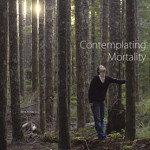Oliver Burkeman got me again. He is just good. From a psych perspective as well as from Mid-west common sense: remaining positive at all costs is a ridiculous goal because the “plane has already crashed!”
Read his take, lift your head and find some joy in the middle of the dreck we face daily.
You can do it!
Yep, a lot is definitely wrong but think about it, and then ask yourself: “Right now, what is going right in my life, right now?”

Life is a Bitch. Got it? So now what?
Oliver Burkeman got me again. He is just good. From a psych perspective as well as from Mid-west common sense: remaining positive at all costs is a ridiculous goal because the “plane has already crashed!”
Read his take, lift your head and find some joy in the middle of the dreck we face daily.
You can do it!
Yep, a lot is definitely wrong but think about it, and then ask yourself: “Right now, what is going right in my life, right now?”
Oliver Burkeman got me again. He is just good. From a psych perspective as well as from Mid-west common sense: remaining positive at all costs is a ridiculous goal because the “plane has already crashed!”
Read his take, lift your head and find some joy in the middle of the dreck we face daily.
You can do it!
Yep, a lot is definitely wrong but think about it, and then ask yourself: “Right now, what is going right in my life, right now?”
The Imperfectionist, Oliver Burkeman
It’s worse than you think.
Here’s a surprisingly useful question to ask yourself next time you’re stumped by a problem, daunted by a challenge, or stuck in a creative rut: “What if this situation is even worse than I thought?”
This question, I admit, appeals to my taste for bloodyminded contrarianism. But its real value is that it expresses what I think of, more and more, as a fundamental truth about human psychology: that we often make ourselves miserable – and hold ourselves back from what we might be capable of achieving – not because we’re too pessimistic, but because, in a sense, we’re not pessimistic enough.
We think of certain kinds of challenges as really hard when they are, in fact, completely impossible. And then we drive ourselves crazy trying to deal with them – thereby distracting and disempowering ourselves from tackling the real really hard things that make life worth living.
A case in point: you feel overwhelmed by an extremely long to-do list. But it’s worse than you think! You think the problem is that you have a huge number of tasks to complete, and insufficient time, and that your only hope is to summon unprecedented reserves of self-discipline, manage your time incredibly well, and somehow power through. Whereas in fact the incoming supply of possible tasks is effectively infinite (and, indeed, your efforts to get through them actually generate more things to do). Getting on top of it all seems like it would be really hard. But it isn’t. It’s impossible.
Or maybe your issue is feeling anxious about what the future holds, in your life or the world at large. You feel as though you need to engage in constant planning, or reassurance-seeking from others, or some other form of psychological self-defence, in order to cushion yourself from the worst of the uncertainty. But it’s worse than you think! In fact, anything could happen at any moment. The future is always entirely uncertain. And while planning has its uses, it will never do the slightest thing to alter what the spiritual author Robert Saltzman calls your “total vulnerability to events.”
On and on it goes. Imposter syndrome? Worse than you think – because you think the issue is that you don’t yet have the qualifications to hold your own among your colleagues, when in fact the truth is that everyone is winging it, all the time, and that if you’re ever going to make your unique contribution to the world, you’re going to have to do it in a state of unreadiness. Relationship troubles? You might think the problem is that you married the wrong person, or that you need to work on yourself, and these might of course be true. But also, it’s worse than you think – because two humans living and growing together is just inevitably a matter of having one’s buttons pushed and one’s old psychological issues triggered. (I love the psychotherapist Bruce Tift’s wry observation that he no longer experiences any problems in his marriage – but only because he no longer defines “the experience of emotional disturbance” as a problem.)
Anyway, you get the picture. And you probably get the point, too – which is that when you grasp the sense in which your situation is completely hopeless, instead of just very challenging, you can unclench. You get to exhale. You no longer have to go through life adopting the brace position, because you see that the plane has already crashed. You’re already stranded on the desert island, making what you can of life with your fellow survivors, and with nothing but airplane food to subsist on. And you come to appreciate how much of your distress arose not from the situation itself, but from your efforts to hold yourself back from it, to keep alive the hope that it might not be as it really was.
And then, crucially – because some people tend to mistake this for an argument for nihilism, or a life of mediocrity, when it’s really the opposite – that’s precisely when you can throw yourself at life’s real hard challenges: the impressive accomplishments, bold life choices, and deeply fulfilling relationships. You get to live more intensely, because you’re no longer making your full participation in life dependent on reaching some standard – of productivity, of certainty about the future, of competence, etcetera – that you were never going to reach in the first place.
In a piercing recent essay that’s well worth your time, Simon Evans writes about watching his daughter become an adult, and also about the death of a close friend, and how painful it is to experience the speed at which something as seemingly substantial as a childhood or a friendship is over and gone for good. Toward the end, he offers a few thoughts on how to make sure you’re truly present for life – ways to “drive a stake into the shining moment.” But I love what Evans doesn’t do in the piece, too. He doesn’t turn it into a lecture about seizing the day. Nor does he dwell on what he wished he’d done differently, thereby implying that there might be some cunning way to avoid the experience of loss. No, his essay suggests, it’s worse than that: a life fully lived just is painfully bittersweet, the joy inextricably intertwined with loss. The major chapters of life, such as your children’s childhoods, just will feel like they’re over too fast, pretty much whatever you do.
In short: we can’t ever get free from the limited and vulnerable and uncertain situation in which we find ourselves. But when you grasp that you’ll never get free from it, that’s when you’re finally free in it – free to focus on the hard things, instead of the impossible ones, and to give this somewhat preposterous business of being a human everything you’ve got.






























